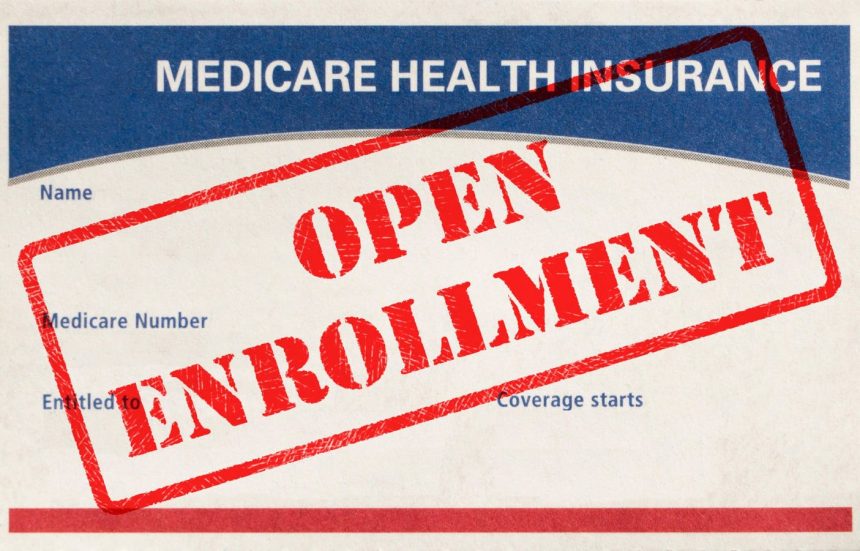The ability to switch Medicare plans isn’t as available as many beneficiaries are told or believe, and the Centers for Medicare and Medicaid Services wants beneficiaries to be more aware of the practical limits.
In a section of new proposed regulations, the Centers for Medicare and Medicaid Services says that agents and brokers must discuss certain topics with customers before enrolling them in Medicare Advantage plans, a proposal CMS labels Informed Enrollment.
Most Medicare beneficiaries know that each year during open enrollment (October 15 – December 7) they’re allowed to change their coverage. The new coverage will take effect the following January 1.
During open enrollment, a beneficiary can switch from one Medicare Advantage plan to another. Or someone in a Medicare Advantage plan can move to original Medicare. A move from original Medicare to a Medicare Advantage plan also is allowed.
The law and regulations allow these changes. Insurance agents and companies state these rights when presenting their plans. Some will assure beneficiaries there’s no risk to trying an Advantage plan, because the beneficiary always can switch later.
But as the saying goes, the facts on the ground often are a bit different than what the law says you can do. Some practical factors can prevent people from making all the changes the law allows.
During the initial enrollment period, companies offering Medigap policies are required to issue a policy to everyone who applies and to charge the same premium as every other applicant of that age and in that locality.
No medical underwriting is allowed. The insurer can’t review an applicant’s medical history or require a physical exam before deciding whether to issue a policy. An application can’t be denied because of pre-existing medical conditions, a rule known as “guaranteed issue.”
Once a person buys a Medigap policy, it is guaranteed renewable. With few exceptions, the insurer has to renew the policy each year, if the beneficiary chooses, without any medical underwriting. Premiums must be the same as for others in the beneficiary’s class.
But in most states, guaranteed issue of Medigap policies ends with the initial enrollment period.
Medicare law allows each state to continue the guaranteed issue requirement or institute other protections after the initial enrollment period. But most states decline to issue such protections.
Guaranteed issue is continued in only four states. Connecticut, Massachusetts, and New York impose guaranteed issue continuously. Maine requires it for one month every year for Medicare Supplement Plan A policies and has other protections in other months.
In 28 states, insurers are required to issue Medigap policies to eligible applicants whose employers changed their retiree health benefits, according to the Kaiser Family Foundation.
In all other states, after the initial enrollment period insurers can conduct medical underwriting and deny coverage or charge higher premiums to most applicants because of pre-existing medical conditions or health history.
There often are exceptions, such as for beneficiaries who recently moved or who are in the Medicare Advantage trial period.
But for the most part, beneficiaries can’t be sure they’ll be able to obtain a Medigap policy after their initial enrollment period.
A beneficiary still can move from an Advantage plan to original Medicare. But without a Medigap policy to supplement original Medicare, the beneficiary has to pay for all the gaps in Medicare Part B.
The out-of-pocket cost can be substantial, because a major gap is the 20% coinsurance amount on most covered care. If a beneficiary can’t obtain a Medigap policy to cover that and other gaps, switching from an Advantage plan to original Medicare can be unaffordable.
CMS proposes that insurance agents selling Medicare Advantage plans be explicit with customers who are enrolling in an Advantage plan for the first time. These beneficiaries should be informed about the guaranteed-issue rights federal law provides for first-time enrollees in original Medicare.
They also should be clearly told that after the initial enrollment period, insurers can engage in medical underwriting and use the results to deny coverage or charge higher premiums.
The proposed regulations also say that after presenting this information, the agent is to “pause to address remaining questions the beneficiary may have…”
This section on “informed choice” is only part of a 713-page proposed regulation that also says, among other things, Medicare will pay for the new obesity drugs. That likely will increase future premiums.
The change in regulations was proposed recently. There’s a public comment period. Then CMS has to review the comments and consider them before issuing final regulations.
Read the full article here




